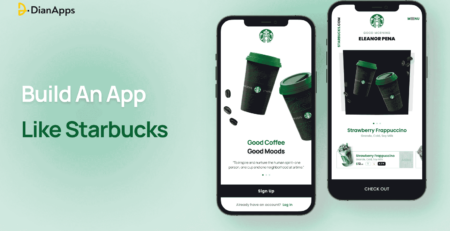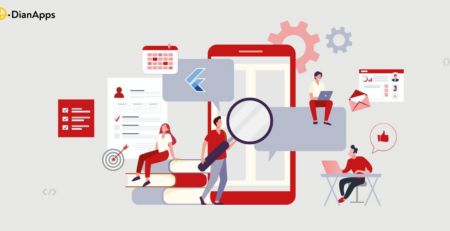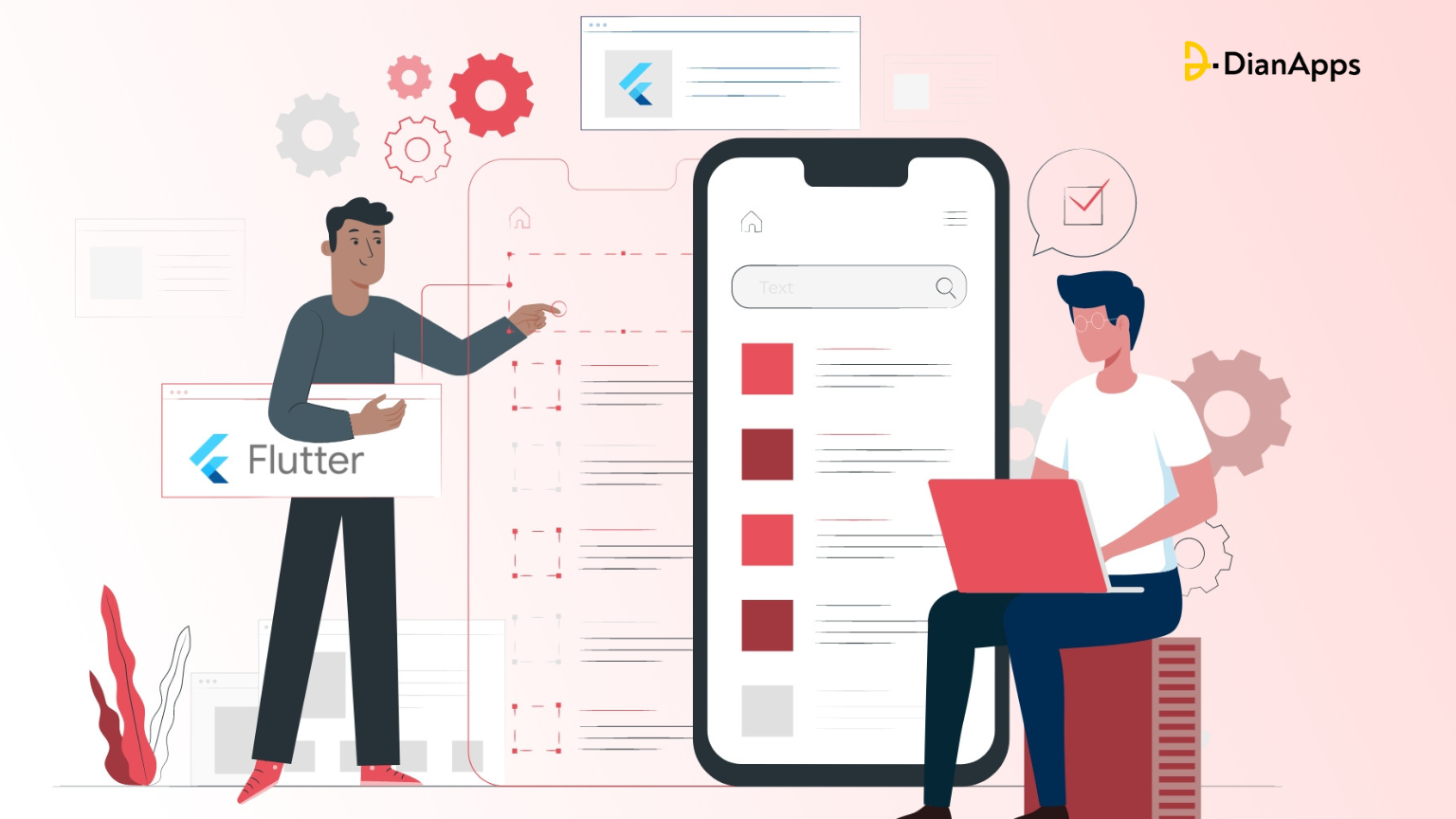How Much Does Mobile App Development Cost in the UK: 2024 Detailed Guide
Are you seeking to develop a mobile app in the UK but uncertain about the associated costs?
Creating a mobile app for businesses in the UK is not just beneficial; it’s important. It enhances customer engagement, elevates brand visibility, and enriches user experience, ultimately expanding reach and providing valuable data insights.
For businesses, especially startups and SMEs aiming to scale in the UK, understanding the cost of hiring mobile app development services in 2023 is crucial. The cost varies, starting at £8,000 for a simple app and exceeding £70,000 or more for complex ones.
This guide aims to provide a comprehensive answer to this question, delving into factors influencing app development costs, diverse monetization models, the mobile app development process, and tips for cost-saving in the development journey.
As you go through this article, stay informed about the details of app development costs and make informed decisions for your business’s digital advancement.
Mobile App Development: Market Scenario in the UK
- The United Kingdom leads as the most lucrative mobile app market in Europe.
- Nationwide app sales revenue reached 3.4 billion U.S. dollars, with over half generated through the Apple App Store.
- In 2022, users in the UK downloaded a staggering 2.2 billion apps.
- Despite the widespread use, the industry has experienced a 16.8% decline in revenue over the past five years.
- The projected industry revenue for 2023 stands at an estimated £21.8 billion, reflecting evolving dynamics and challenges in the mobile app sector.
Breakdown on Average Mobile App Development Cost
Developing an app comes with a price tag that typically falls between $35,000 to $250,000 and beyond. Numerous factors play a role in determining this cost, and we’ll delve into each one. The primary factor that significantly impacts the overall cost is the complexity of the app.
Mobile App Development Cost by complexity
1. Simple App Development
Features:
- MVP functionality
- Basic UI
Approx. App Cost: $35,000 to $55,000
Estimated Time: 2-3 months
2. Basic App Development (Less Complex)
Features:
- Sophisticated features
- Custom UI
Approx. App Cost: $55,000 to $140,000
Estimated Time: 3-6 months
3. Complex App Development
Features:
- High level advanced features
- Bespoke UI
- Two platforms
Approx. App Cost: from $200,000
Estimated Time: 9+ months
Mobile App Development Cost by Technology
Distinguishing by industry is a crucial factor that significantly impacts the cost of developing an app. Here’s a breakdown of the costs based on different technological requirements:
1. iOS app
Approx. Cost: $70,000-$450,000
2. Android app
Approx. Cost: $45,000-$500,000
3. Cross-platform app
Approx. Cost: $85,000-$700,000
Real-Life Examples of App Development Costs and Features in the UK
1. Citymapper
Cost: £40 million
Key Features:
- Real-time Transit Updates
- Guided Navigation with Step-by-Step Directions
- Seamless Integration with Local Transportation Services
- Offline Functionality for Uninterrupted Access
2. Monzo
Cost: £20 million
Key Features:
- Creating a Pleasurable User Experience
- Instant Updates on Transactions
- Efficient Budgeting Tools
- Simplified Money Management Features
- Integration with Mobile Payment Platforms
- Seamless Customer Support
3. Deliveroo
Key Features:
- Wide range of local restaurants
- User-friendly interface
- Real-time order tracking
- Variety of cuisines available
- Convenient delivery services
Factors Influencing App Development Cost
The total expenses for leveraging mobile app development services largely depends on the project’s objectives and the time required for coding. Numerous factors come into play when determining the investment needed for development.
1. App Complexity
The complexity of your desired app directly impacts the app development costs in the UK. For optimal feature quality, it’s crucial to determine whether an application programming interface (API) or a content management system (CMS) is needed for seamless integration with other services.
2. App features and functionalities
The cost of creating an app is highly influenced by the features and functionalities integrated into the application. As you add more features, the base mobile app development price for your intended app type increases. To manage costs effectively, it’s advisable to focus on core features in the initial app version, ensuring a great customer experience at an affordable price.
Developing a Minimum Viable Product (MVP) for your mobile app, which includes a basic set of features, is a wise approach. An MVP helps save time and money while collecting valuable user feedback for future enhancements.
3. Platforms
The choice of platforms for your desired app significantly influences the overall app development cost. Opting for native app development for a single operating system (OS) is more cost-effective than cross-platform app development in the United Kingdom.
However, it’s important to consider that focusing solely on iPhone app development may limit your reach to potential Android users. To maximize success, it’s recommended to target both Android and iOS users for broader market coverage.
4. Code reuse
Leveraging code reuse is a strategy that significantly reduces the cost of mobile application development. When businesses opt to utilize the code from an existing app and only modify branding elements, the overall development cost becomes considerably lower.
However, industry experts, like those at DianApps, advise businesses to limit code reuse to common elements such as contact forms and login features. Developing unique aspects from scratch is crucial to maintaining a distinct brand identity. In such cases, the cost of app development can be 20-30% less compared to creating an app entirely from the ground up.
5. Backend infrastructure and API integration
The cost of mobile app development can increase when a robust backend infrastructure, cloud services, or integration with third-party APIs are necessary. Developing and maintaining a backend system and incorporating external services add complexity and extend the development time, contributing to an increase in overall costs.
Know more about what is an API, and how can they benefit your business?
6. Team
The cost of app development services is influenced by the expertise and experience of the development team. A highly skilled and experienced team may command higher fees. It’s important to note that a larger and more proficient development team can impact both the product’s quality and the timeline for its release.
7. Support And Maintenance
Post-release development is just as crucial as the pre-launch phase, ensuring the application functions seamlessly without glitches. This includes bug fixes, security updates, and compatibility adjustments for advanced operating system versions.
Ongoing support typically spans around six months after the launch, and the global cost of building an app, including in the United Kingdom, covers the mobile app maintenance cost. It’s essential to allocate resources for sustained performance and user satisfaction throughout the app’s lifecycle.
How To Decrease Your App Development Cost
Business owners and entrepreneurs have several strategies to reduce mobile app development costs. Here are some valuable tips to consider:
1. Prioritizing Features
When creating an app, prioritizing features is crucial for swift business value. Save trendy and complex functionalities for later stages of development to focus on delivering essential value initially.
2. Early Involvement of Quality Control
It’s natural for your app to have bugs and errors initially. Involving QA experts from the start helps identify and address serious issues in the early stages of mobile app development, saving significant costs.
3. Planning for the Future
Planning ahead is crucial in app development. The app created today will evolve, with changes in the target audience, features, and UI. This foresight prepares you for the inevitable shifts in the product’s direction. It’s better to get in touch with an app development company to consult about the future.
4. In-house vs. Outsourcing
Choosing between outsourcing and in-house development is a pivotal decision in mobile app development. Outsourcing involves partnering with an external team, tapping into a talent pool, and cutting down on internal costs. This approach offers flexibility and access to skilled professionals, streamlining the development process while minimizing expenses related to office space and equipment.
If you’re still not sure, read our blog on outsourcing software development for a better understanding.
Hidden Costs of App Development in the UK
1. Technical Complexities
Creating an app comes with inherent complexities like integrating third-party APIs, handling intricate features, ensuring compatibility, and addressing security. Overlooking these factors in the initial estimation may lead to unexpected expenses later in the development process.
2. Constant Development and Updates
Apps, like everything else, evolve. After the initial launch, user feedback and market demands may necessitate regular updates, contributing to the iterative mobile app development process. This can be costly, especially if your app requires frequent updates to stay competitive in the dynamic UK market.
3. App Store Submission and Maintenance
Publishing your app on popular app stores entails expenses like one-time registration fees, yearly developer account charges, and costs for future updates. Ongoing app maintenance and support, including bug fixes and compatibility updates, should not be overlooked. These considerations can subtly affect your budget, highlighting the importance of accounting for them in your financial plan.
4. Cost of App Hosting
An often overlooked but crucial expense in app development is hosting. Once your app is built, it needs a place to operate. Hosting services, like cloud hosting, dedicated servers, or shared hosting, come with varied costs.
Your choice of hosting can significantly impact your monthly or annual expenses. Consider engaging with the right mobile app development company that prioritizes factors such as scalability, security, and uptime guarantees to ensure your mobile app runs smoothly without unexpected cost spikes.
5. Regulatory and Legal Compliance
Building an app in the UK comes with rules you can’t ignore. You’ve got to follow data protection laws, privacy rules, and industry standards. If you don’t, your app might get kicked out of the app stores, and that’s bad for your budget. So, it’s crucial to play by the rules to keep your app and your wallet safe!
6. App Marketing Costs
Crafting an outstanding app is merely the starting point; true success relies on a robust marketing strategy. The often overlooked investment in app promotion, within development costs, is crucial. Incorporating Digital Marketing services into your strategic efforts becomes imperative to outshine competitors, ensuring your app not only gains visibility but also resonates effectively with your target audience.
Key Takeaway
In conclusion, app development costs vary widely, ranging from €4000 to €240,000+, with predicting upfront expenses proving challenging. The initial phase, encompassing strategy and discovery, demands both significant time and cost, ultimately distinguishing between project success and failure.
Understanding the factors influencing mobile app development costs empowers you to formulate a budget for your impending project. DianApps, a prominent mobile app development company in the UK, possesses the expertise to guide your app idea towards triumph.
Let DianApps be your partner in transforming ideas into successful mobile applications, ensuring a seamless transition from conception to digital success.




